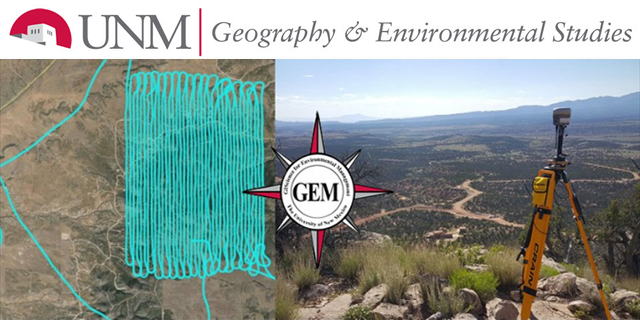
Geography ETDs
Publication Date
Spring 4-15-2019
Abstract
Making water management decisions is often where dreams and visions about potential futures are constructed and contested (Swengedouw 2015). However, in a globalized world, it is not well understood how people can challenge dominant paradigms to shape desirable futures when they are also complicit in, and dependent on existing structures (Arts & Buizer 2009; Emery, Perks, & Bracken 2013: Kleinschmit, Böcher, & Giessen 2009). This project examines a brewery conflict in the Mexicali Valley that provides an example of how protesters were able to challenge dominant assumptions about water management in a complex, globalized environment. I draw on Laclau’s (2005) theory of empty signifiers and perform a narrative analysis to analyze the conflict. I also use historical analysis and interviews to support my claims. I argue that water was used as an empty signifier, a flexible symbol that enables various non-traditional alliances to collectively resist in the face of a recent history of undermined collective agency. Protesters used an alternative narrative, I term the defense of water, to gain political traction and challenge the dominant narrative. Somewhat paradoxically, this narrative obscured a primary driver of water scarcity, agricultural use practices, even though addressing water scarcity is a goal of the protesters. This paper discusses the implications for material-symbolic relationships with water in the Mexicali Valley.
Degree Name
Geography
Department Name
Geography
Level of Degree
Masters
First Committee Member (Chair)
Benjamin P. Warner
Second Committee Member
Ronda Brulotte
Third Committee Member
Chris Duvall
Document Type
Thesis
Language
English
Keywords
Water Governance, Mexicali Valley, Constellation Brands Conflict, Empty Signifier, Water Protests
Recommended Citation
Meluso, Anthony J.. "La gota que colma la caguama: Cummulative Tensions Transformed into the Defense of Water." (2019). https://digitalrepository.unm.edu/geog_etds/44
Included in
Environmental Sciences Commons, Latin American Languages and Societies Commons, Physical and Environmental Geography Commons
